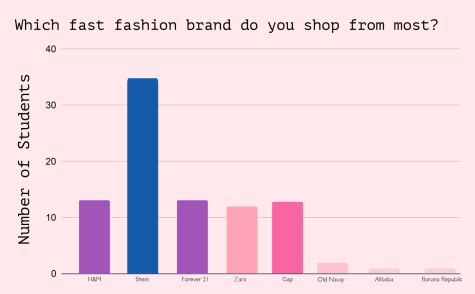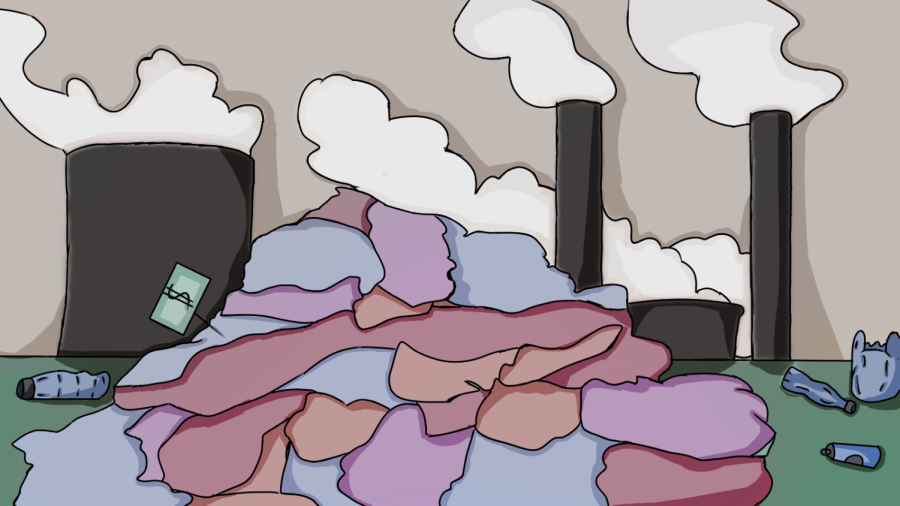Fast fashion’s rapid growth is deadly
Business Manager Luke Utzschneider writes that the fast fashion industry’s rapid growth harms people and the environment.
March 9, 2023
With the rise in popularity of online brands like Shein and Romwe, fast fashion has taken the fashion industry by storm and transformed the nature of purchasing clothes. The business model of rapid cloth production, prioritizing quantity over quality, has grown at an astounding rate in recent years. It will continue to skyrocket in the future with an expected compounded annual growth of 10.7% by 2027, to a market size of $184.96 billion.
This high level of production has visual, profound consequences worldwide. Fast fashion companies are incentivized to follow this business model as it lowers their production costs and allows them to more effectively follow trends, meaning they can continuously sell clothing and attract repeat customers. As a result, the fashion industry utilizes unethical means of production with 93% of fashion brands not paying workers a living wage, throwing away huge amounts of textile (92 million tons), negatively contributing to climate change.

In a poll conducted on Algonquin students, the majority of students said the brand they most associated with “fast fashion” was Shein, with very few saying H&M or Forever 21. However, when asked which brands they shop with the most, those two were among the most popular. A large part of the reason why fast fashion is steadily growing is the average consumer does not realize the extent to which it has seeped into the entire clothing industry.
Such a large proportion of stores nowadays have changed their business models to this in order to increase profits that it may seem hard to find a brand not considered fast fashion. From Zara and Uniqlo to Gap and Brandy Melville, almost all the brands we buy from online or in the mall encompass this. This is a large shift from years ago where many brands were smaller and more ethically sourced, meaning you could shop at most stores without fully having to consider the environment—a shift many people have not entirely caught onto yet.
Now, you may be wondering, “Where am I supposed to buy clothes then?” You could shop at thrift stores, offering cheap prices and one of a kind pieces. Secondhand apps such as Grailed or Depop are also a great option if you are looking for more specific items. You could also shop sustainable brands like Quince or Pact, which produce ethically sourced, quality pieces of clothing backed by environmental-friendly missions. Many people are opposed to buying expensive pieces of clothing from brands like these, failing to realize that these pieces will surpass trend cycles and last a lifetime compared to those from cheap fast fashion brands.
The clothing industry has misled customers with ad campaigns and false messaging for years, and continues to sweep their unethical practices and effects of their brands under the table. It is not your fault that you have been deceived, however it is your responsibility to understand that your purchasing habits affect more than just yourself. It’s up to you, the consumer, to make a change for a better future.











